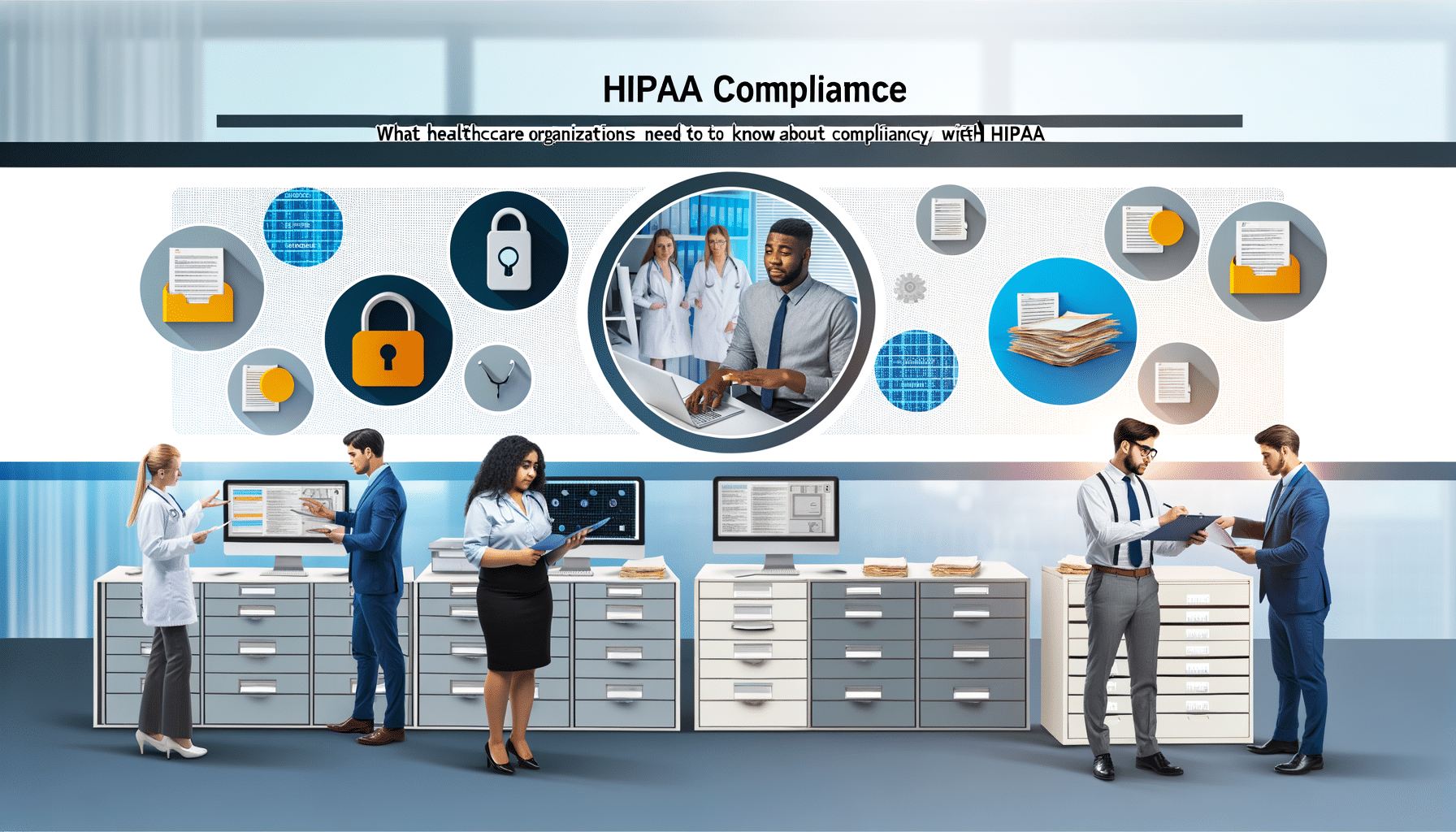Streamlining HIPAA Compliance in Healthcare: A Comprehensive Guide to Efficient Record-Keeping
When it comes to healthcare, safeguarding patient information is paramount. It’s a challenging, yet essential, part of ensuring trust and compliance within the industry. As I’ve navigated through various entrepreneurial ventures, I’ve frequently been asked, “How can we ensure our record-keeping aligns with HIPAA requirements?” This is a question that resonates with healthcare organizations across the globe, where keeping records secure and accessible is both a necessity and a legal obligation. Allow me to delve into what organizations need to know about achieving HIPAA compliance through smarter record-keeping practices.
The Importance of HIPAA Compliance in Healthcare Records
The Health Insurance Portability and Accountability Act (HIPAA) is the cornerstone for keeping patient information confidential and secure in healthcare. Non-compliance can lead to significant penalties, not to mention a loss of trust among patients and stakeholders. My approach at RecordsKeeper.AI has always been proactive, embracing technology to streamline compliance. Our platform integrates AI for automated record categorization and tagging, transforming the once-daunting task of managing patient data into an efficient process.
Key Challenges in Healthcare Record-Keeping
Healthcare organizations face several challenges in maintaining HIPAA-compliant records:
- Volume and Variety: The sheer volume and diversity of patient records can overwhelm traditional systems. Modern solutions, like those we’ve developed, leverage AI to classify these records dynamically, easing retrieval and ongoing management.
- Data Security: With sensitive health information at stake, robust security protocols are non-negotiable. We’ve incorporated secure data rooms in our systems, offering controlled access and real-time tracking to prevent unauthorized use.
- Regulatory Changes: Compliance evolves with updated regulations. Healthcare providers must stay updated, ensuring processes align with new requirements. Our compliance management tool automates adherence to standards like HIPAA, reducing the administrative burden.
Implementing Effective Records Management
To achieve compliance and efficiency, I advocate an integrated approach to record management that aligns with HIPAA’s stringent requirements:
1. Automated Workflow Management
Automation is at the heart of efficient record-keeping. By automating workflows through platforms like RecordsKeeper.AI, healthcare providers can ensure stringent adherence to regulatory compliance, from data retention to audit reporting functionalities. Automated systems track every change, so you’re always audit-ready with comprehensive logs and reports.
2. Embracing Blockchain Technology
Blockchain offers unprecedented advantages in maintaining data integrity. Implementing blockchain technology in record-keeping ensures that records are tamper-proof and immutable, guaranteeing transparency and traceability. As a founder, I take pride in pioneering a solution that integrates blockchain into our platform to future-proof healthcare records management.
3. Policy Management and Training
While technology plays a crucial role, effective policy management and regular staff training are equally important. Establish clear guidelines for data access, sharing, and storage. Regular training ensures that all employees understand HIPAA regulations and the tools they use in compliance.
Data breaches can often be traced back to human error, which is why we emphasize policy enforcement alongside technology. Solutions like ours can automate data policies, reinforcing correct data handling without constant oversight.
The Future of HIPAA-Compliant Record-Keeping
There’s no doubt that the future of healthcare record-keeping lies in intelligent, technology-driven solutions. As AI and blockchain continue to evolve, the ability to manage records efficiently and compliantly will only improve. I believe that healthcare organizations that invest in such innovations will not only benefit from reduced operational burdens but will also uphold a standard of care that places patient trust and security at its core.
Conclusion
Ensuring HIPAA compliance in record-keeping is not just about adhering to regulations; it’s about protecting patient trust and fostering a robust healthcare system. As leaders, it’s our responsibility to leverage the best technology has to offer, transforming challenges into strategic advantages. If you’re looking to overhaul your record management approach, consider how RecordsKeeper.AI can support you on this journey. Feel free to reach out to me for any insights or assistance in your compliance endeavors. Let’s safeguard the future of healthcare together.








